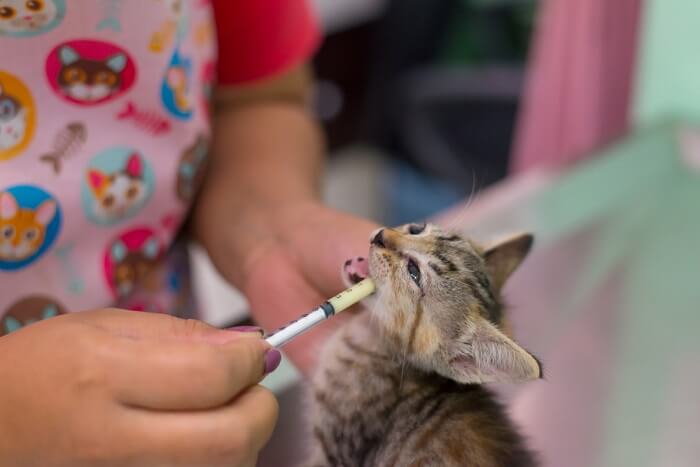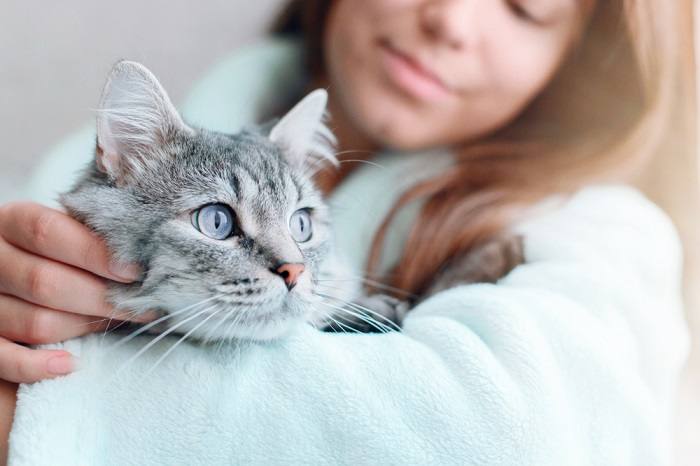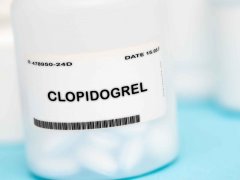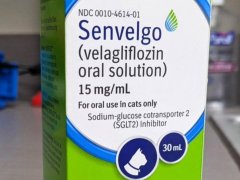
Fenbendazole is a broad-spectrum dewormer commonly used in veterinary medicine to treat pets for a variety of nematode (worm) and protozoal parasites. Common brands include Panacur and Safe-Guard.
In this article, you’ll learn what fenbendazole is, how it works, and the types of parasites in cats it may be used for, as well as some frequently asked questions.
Fenbendazole for Cats Overview

About Fenbendazole for Cats

Fenbendazole is classified as a benzimidazole antiparasitic agent and has a very wide range of effect against a variety of internal parasites.
Microtubules are structures within cells that assist in transport of materials within the cells. Fenbendazole acts to disrupt this transport system in affected parasites. At higher doses, it may also disrupt metabolic enzymes and pathways of affected parasites.
What Does Fenbendazole Do for Cats?

Fenbendazole can have efficacy against a variety of internal parasites commonly found in cats, including roundworms, hookworms, whipworms, lungworms, the protozoal parasite Giardia, and several others.
While it is helpful to know what fenbendazole does treat, it is also important to be aware of what it does not treat.
While it can be used to treat tapeworms, this is only for tapeworms of the Taenia species. Dipylidium caninum, which is more commonly seen in cats when they ingest a flea, requires a different dewormer for treatment.
Fenbendazole also does not have efficacy against coccidian parasites like Cystoisospora (Isospora) species, which may sometimes be seen in a cat’s stool sample and/or cause gastrointestinal disease.
It is not effective against Toxoplasma gondii, which causes toxoplasmosis, the disease human physicians often counsel pregnant women about in regards to avoiding contact with a litter box or cat feces during pregnancy.
Heartworms, which are not intestinal worms, but are transmitted by mosquitoes and dwell in the major vessels near the heart as well as the heart chambers themselves, are not affected by fenbendazole. While not covered here, there is no approved treatment for heartworms in cats.
Side Effects of Fenbendazole for Cats

Some cats may experience temporary diarrhea while taking fenbendazole.
At appropriate dosages, fenbendazole does not typically cause any adverse reactions on its own. Infrequently, drooling, vomiting, or diarrhea may occur.
It is important to remember that the job of any dewormer is to kill internal parasites. This means that sometimes, a reaction may occur to components released by a dying parasite, especially in cases where a very high parasite load is present.
In these cases, drooling, vomiting, diarrhea, or GI discomfort may be more likely to be seen. Typically, these signs are temporary, but if concerning, should be reported to an attending veterinarian in case some supportive care is needed.
If you are ever concerned that your kitty may have developed side effects while using fenbendazole, or if an overdose is suspected, make sure to immediately contact one or more of the following for advice:
- Your veterinarian
- ASPCA Animal Poison Control Center (1-888-426-4435)
- Pet Poison Helpline (1-855-764-7661)
Fenbendazole for Cats Dosage

Your veterinarian will tell you the proper dosing for fenbendazole, which is determined by weight.
While it is FDA approved for use in dogs, fenbendazole is not labeled for use in cats and all dosing is considered extra-label in kitties.
For this reason, any products labeled only for dogs, including over the counter products like Safe-Guard, should be reviewed first with your vet to determine what dose will work best for your cat.
Dosing depends on body weight. Duration of treatment with fenbendazole depends on the type of parasite, where it may be used for anywhere from three to up to 10 or more consecutive days.
Remember that not all digestive disturbances are caused by intestinal parasites and fenbendazole does not treat for all potential parasites. Any use of a dewormer should be based on results of a fecal/stool sample or otherwise as directed by a veterinarian.
Fenbendazole only comes in powder or liquid suspension forms that are appropriate for use in small animals. The powder can be tricky to properly portion out and dose for some smaller cats and kittens, another reason to refer to your vet for proper instructions.
The liquid oral suspension requires a prescription, but comes in a 1 liter bottle size, making it impractical as a choice for a single treatment course. Veterinary practices typically dispense individual doses or smaller dosage volumes to use for treating a cat or kitten for susceptible parasites.
The syringe paste intended for use in horses is also impractical to use in cats, as they typically require doses much smaller than the increments on the syringe.
Interest in Fenbendazole for Cancer Therapy
In the last couple of years, there has been increased interest in benzimidazoles, more specifically, fenbendazole, for properties that may help to kill cancer cells. The same mechanism of action that makes fenbendazole potent against parasites has been shown in some laboratory studies to have similar effects on cancer cells.
Microtubules are structures very important for several cell functions, including dividing and multiplying. Fenbendazole acts as a microtubule destabilizing agent and has action against several other cellular pathways.
While fenbendazole shows some promise and potential in future anti-cancer therapies, experts are still in the earliest stages of understanding its benefits for certain cancers in people as well as safety parameters for its use. To date, there have been no clinical trials in humans or pets, only observations on cell cultures in a lab setting. There is a very big difference between how a medication may behave towards cells in a lab and the effects it may have on cells in the body.
Interest in fenbendazole’s potential use for cancer treatment has caught the attention of many, especially on social media, which has led people to self-medicate with the deworming product labeled only for use in some animals.
Much of this stemmed from a man with small-cell lung cancer who claimed in 2016 that taking fenbendazole directly contributed to his cancer going into remission. What often goes unmentioned is that the man was on conventional cancer treatment under the care of an oncologist at the same time.
This story still led to a craze of people buying fenbendazole to self-medicate. The effects have not been consistently positive.
In 2019, Korean oncologists documented one particular case of an 80-year-old woman who developed severe liver toxicity after taking fenbendazole for several months. And a Korean celebrity who initially touted fenbendazole’s benefits for cancer reneged on these claims several months later, saying it was ineffective.
While the safety of fenbendazole has been far better established in animals, including pets, its use for cancer is just as unfounded and there is no established dose for cancer treatment.
It is used safely for up to one month for some deworming protocols. But there are no studies on the effects of using fenbendazole every day for extended periods of months or years or that these protocols work for cancer.
Oncologists also point out that the mechanism of microtubule destabilization is not unique to febendazole. There are other existing chemotherapy medications that work by this same method.
As Sheila Singh, director of McMaster University’s Centre for Discovery in Cancer Research, says, “Seeing promising data in a dish of cancer cells is the beginning, but to say that something could cure cancer is unscientific because there’s no data that backs that claim up whatsoever.”
Preliminary research is promising, to be sure. But there is still no concrete evidence that fenbendazole is an effective anti-cancer treatment and should never be used in lieu of accepted and conventional cancer therapy approaches.
Vets who will not consent to prescribing fenbendazole for this purpose are not trying to deny access to a miracle cancer cure. They are trying to focus efforts on evidence-based approaches that have documented benefits.
Some vets may suggest the use of fenbendazole in terminal patients because of the perception that it won’t hurt. This may be true. Just remember that its use for that purpose is very off-label, with little evidence to support that use at this time.
But hopefully, the future holds great promise with further research.
Conclusion

Fenbendazole is a very effective and safe broad-spectrum dewormer used commonly to treat cats and kittens for a variety of internal parasites. It is important to remember however that it does not treat all parasites, and not all digestive disturbances are caused by parasites. That’s why it’s important to work with your veterinarian to determine if using fenbendazole is appropriate.
Drug Dosing Disclaimer: We are only able to provide doses for medications that are FDA approved for use in cats and only as the label guidelines dictate. For medications that are used off-label we can only provide guidelines and safety information for use. Safe and appropriate dosing for off-label medications can only be determined by a primary care veterinarian.
We encourage you to work with your veterinarian to determine if a particular medication is appropriate for your cat. Changing or adjusting a dose for your cat on your own without consulting with a veterinarian can carry risk. We do not encourage use of medications prescribed for human use in pets without first consulting with a primary care veterinarian.
Frequently Asked Questions
How much fenbendazole can I give my cat?
The dosage amount will depend on your cat’s weight and the form of fenbendazole available. To ensure proper dosing, as well as to confirm whether or not fenbendazole is appropriate to give your cat, it’s best to talk to your veterinarian.
Is fenbendazole safe for cats?
Yes, fenbendazole is generally deemed very safe for cats. On occasion, some mild digestive upset may occur. Digestive upset may be more common when fenbendazole is used to treat cats with high parasite loads and the dying parasites cause disturbance in the body.
Can cats be dewormed with fenbendazole?
Yes, although it depends on what worms a cat is infected with. Use of a dewormer should always be based on a stool/fecal sample or similar testing for the presence of parasites. In cats, fenbendazole is most effective against roundworms, hookworms, lungworms, and the protzoal parasite Giardia.
How do you give fenbendazole to a cat?
This depends on the form being used. If you have been provided with the powder form, it’s often easiest to give to a cat mixed with wet or soft food, both to hide the taste, but also because it may be more effective when given with food.
If you have the liquid suspension form, it may also be mixed with wet or soft food if your kitty will take it that way. However, it may need to be administered directly by mouth with a syringe that your veterinarian should provide you. This is especially the case with small cats and kittens.
If you have difficulty administering fenbendazole to your cat, make sure to touch base with your vet to discuss additional ideas, see if a different dewormer may be effective, or to set up an appointment for veterinary staff to administer the dewormer for you.








You try so hard to explain and do so with patience. Thank you for your efforts.
Thank you, Ann, I do appreciate that. Kind regards.
We have two cats both the same age. Our one 10yo 11 lb cat was just diagnosed with GI lymphoma via ultrasound. The vet was ready to euthanize him right a way too. After doing research we also came across fenben for treatment too as we are hearing so many good stories. We purchased the goat dewormer 100mg/ml. But now we are seeing our other cat with the same exact symptoms (vomiting blood, decreased appetite) and wondering is this really cancer?! Our cat was diagnosed one week ago with cancer, it is 3/8/25. And today our other cat started vomiting blood with decreased appetite for the past week which is how this all started with our other cat. I find it crazy both our cats could have cancer at the exact same time, unless this is contagious? But what i read its not. Any help would be so appreciated. We love our boys.
Hi Jeanna,
There are far better and more effective established treatments for GI lymphoma than fenbendazole. Despite what is available to read out there, fenbendazole is not a confirmed panacea for all kinds of cancers. There are only some limited case reports supporting further research may be promising. There are still no established dosing protocols or provided guidance on using it for this purpose. My concern is that given its low cost and the ease to acquire it, too many pet owners are going to use it as a sole treatment approach, losing valuable time that could be used to pursue more established and medically confirmed therapies. Really, you should speak to an oncologist at least about all the options available. Treatment approaches depend on whether it’s small cell or large cell lymphoma. Small cell has a better prognosis but large cell can unfortunately spread rather quickly. I wasn’t clear if you had any confirmatory testing.
For your other cat, you shouldn’t make any kinds of assumptions, as vomiting, even with blood, can have multiple causes. No, lymphoma is not contagious. But it’s very important to get a proper diagnosis. I mean if you have two older cats, it’s always possible they could both have GI lymphoma (I hope not), but it could just as easily be a bad flare up of inflammatory bowel, dietary indiscretion, or something else. An abdominal ultrasound could be really helpful.
My cat, only 4 years old and 10 lbs, has been diagnosed with cancer in the neck of his bladder; inoperable! He’s already taking Metacam. I have ordered CBD oil from Penelope’s Bloom and would like to start him on Fenben, as well. What is the recommended dosage? Also curcumin! Do you have any recommendations? My vet was ready to euthanize him, right after diagnosis; he’s playful and happy to be alive! We love this beautiful boy so much, but will NOT allow him to suffer. As long as he has quality of life, we want to keep him happy and alive! Thanks so much, it’s not easy to type while crying!
Hi Terry,
I’m very sorry to hear about your kitty. If this is truly a bladder neck tumor like transitional cell carcinoma, surgery in that area is often not a great benefit compared to the complications and risks of trying to do it. On top of the risk of scar tissue occluding the urethra and/or urinary incontinence that may result, the tumor may recur if margins aren’t possible.
If you feel your cat’s quality of life is still very good, I don’t feel it’s wrong to value the time you have together until something changes.
Be very vigilant with the metacam. NSAID medications can help slow down bladder tumors and are reasonable to consider but carry risks in cats as well.
I can’t advise a specific curcumin supplement, but it is important to look for a supplement that is actually curcumin and not just turmeric. Some turmeric supplements may have very little actual curcumin in them.
I’m a little puzzled by your interest in starting your cat on fenbendazole in relation to this disease as it does not have any anti cancer or anti-inflammatory properties that I’m aware of. It is simply a dewormer. Was there a specific reason for your desire to use it? Or perhaps you’re thinking of a different medication?
Fenbendazole has treated many cancers in humans as they’re finding all cancer tumors have parasites. Pleas give Terry proper dose recommendations for her 10 lb cat.
I’m sorry Kristine, but I find these statements very misleading. From peer reviewed articles I have read that review experimental research into fenbendazole’s anticancer effects, there is a similar mechanism to that of some other anticancer drugs that has been found. This research has primarily focused on cancer cells in a lab setting. All advocate that there is promise in utilizing fenbendazole’s mechanism of action to develop a new anticancer medication but no one is advocating that cancer patients purchase fenbendazole intended for goats and cattle and start taking it.
These effects also have no association with “all cancer tumors having parasites”. That statement in itself is hugely incorrect.
There are certain parasites, liver flukes for example, that can be carcinogenic and contribute to very specific types of cancers. In some regions of the world where liver flukes commonly infect people, the types of cancers they contribute to are more prevalent. Some parasites may also form cysts or granulomas in the body. While some may refer to these as “tumors” and may contribute to disease, they are not technically cancer.
Furthermore, directing a health practitioner to provide an off label dose for experimental use of a medication to treat a disease for which there is no established dose or even any conventional agreement upon its use for that purpose is inappropriate. I can and did provide the dose of fenbendazole for deworming. I’m even hesitant to do that because the treatment lengths can vary widely depending on parasites being treated. There is no established or accepted dose for fenbendazole as a cancer treatment and no formal research I can find on using it for some indeterminate period of time for that purpose.
Hi Terry, after doing some investigation, I do see that there is newer and promising research into the use of fenbendazole for some anticancer effects in humans. It appears much of this research has been within the last 2-3 years. However, all of this research appears to be in its earliest stages, predominantly in a laboratory setting, and every paper I read indicates that “while promising, more research is needed”. Having had pets with cancer myself, I can understand the desperate need and hope that something out there will make all the difference. But it’s important to realize that there is no panacea for cancer as there are many different cancer types that respond to vastly different therapies. There is no established dose of fenbendazole for any type of cancer in pets and it is not an approved treatment for any kind of cancer either. The dose for fenbendazole for deworming is generally 50 milligrams per kilogram per day in most cases. But the length of time it’s used depends on the parasite being treated. I can’t say at all if this dose is effective for cancer. The longest indicated use for any parasite in cats where fenbendazole is indicated is a couple of weeks. Although generally considered safe for prescribed periods, the effects of using it for an indeterminate period of time, such as for several weeks or many months, is probably poorly understood. There does appear to be reports of people indiscriminately using fenbendazole for anticancer effects that have suffered ill effects. I would suggest caution and reasonable expectations with this approach at best.
Cancer is being caused by over vaccinated animals and gmo over run in all dry cat foods. If a cat has cancer why not try panacur. They will die so why nor try this protocol?
Cancer long predates both vaccines and GMO products, making that a flawed statement by itself. But really, we have to get away from the idea that cancer is just one single disease. There are many different types depending on different cells and tissue types in the body and even then, there are different grades and severities. And many different factors contributing to their development.
Fenbendazole shows promise, yes, but the purpose of continued in vitro lab testing is to see what types and severities of cancers it may be effective against. We still need to make sure we’re exploring options for known treatments for specific cancers first. There’s a lot more knowledge and experience. Treatments aren’t all cost-prohibitive and may have better outcomes than an experimental treatment would. Naturally, if conventional therapies are not an option for one reason or another, alternative therapies are reasonable as long as they are unlikely to cause harm.
The vet is treating my 18 yo BFF the same because of a fast growing mouth ulcer that the vet thinks might be cancer. I bought the goat formula of fenbendazole. It is liquid and easy to dose by weight. My boy is only 14lbs so the dose is 3ml once a day. Just started 6 days ago.
Hi Denise,
If you and your veterinarian have determined together that this is an off label approach to cancer therapy you wish to pursue together, I can respect that. However, as I mentioend to Terry, there is no substantiated evidence or formal research that using a deworming dose of fenbendazole can treat cancers successfully in cats. This is at best at this time, an experimental approach that should be approached cautiously and with the right kind of expectations.
Hi Dr. Vanderhoof. I’ve heard people say fenbendazole helped them recover from different types of cancer. I know someone personally who has had success with the Joe Tippin protocol. I’m glad you’re listening to the people who write to you asking for information about their cats and fenbendazole for cancer. When a pet or even a human is very ill and they’ve exhausted the standard treatments and options available to cure them or prolong their lives, it’s never wrong to give them the freedom to seek alternative methods. I do appreciate your willingness to look at new research and consider options that many refuse to look at. When there are no other options and we’re faced with losing our beloved pet, as long as there are no promises made and there is no pain caused by the treatment, people should always be given the choice to choose alternative treatments. Thanks for caring .
Hi DJ, I definitely think there is a lot of promise with treatments based on fenbendazole. I think it would be far better to have something available that is more refined than an animal dewormer. But hopefully there are people much smarter than myself working on that. In the meantime, I think it comes down to a personal decision discussed thoroughly with your cat’s care provider and making sure to have the right expectations.
What percentage is the goat stuff? Is it 10%?
Yes, the suspension approved for use in cattle and goats is 10%, this is the equivalent of 100mg/ml.
Hi – saw your message and admire you for doing everything in your power for your baby. Take a look on Telegram under Dirt Road Discussions for support on your decision to administer Fenben. Maybe the vet can too and see how much good it’s going for many. God Bless
Look up DR.Jones on utube and cancer. Aman deemed to go home n die after being told cancer stage 4.Began fenbensadole.He is 75 yrs old and cancer free. Veterinary secrets look it up on utube
Thank you for your comment Sandra. I don’t think there is any doubt that fenbendazole has promise as a cancer therapy, but it needs to be studied more. There need to be true clinical trials and safety evaluations and evaluations on its effects for different types and stages of cancer. Cancer is not just one thing for which there can be one treatment. There are multiple different types and severities that require different approaches. I think it is also very different too when you have a human patient given a terminal diagnosis when other conventional treatments have been tried and pursued. I’m sure this individual had been seeing an oncologist and was left with no options at a late stage of cancer. There’s kind of a “what do I have to lose” mentality in those cases. But what concerns me is folks who are going to forsake conventional medical therapies and advice, especially from an oncologist in the case of cancer, and just give themselves (or their pets) a goat and sheep dewormer, not intended for such a purpose. We also cannot compare results from a 75 year old man with a particular form and stage of cancer and widely apply that to all types of cancers in pets. That is just not how cancer works. Oncologists, whether human or veterinary, are really smart and caring people. At the very least consult with one before treating yourself, a family member, or a pet to understand your full range of options.
. I have a ragdall cat who has been having upper respiratory issues ie runny nose sneezing etc for many months now. I have spoken to a vet gotten antibiotics and I also give him lysine 2x a day. I find that even missing one dose makes him all stuffed up. Is there no cure? Would fenbedazole help him? Is so how much
Hi Manjula,
Lungworms are in my experience, a fairly rare cause of sneezing in cats, especially if discharge is clear, and this is the only cause that febendazole would have action against as a dewormer. Cats with lungworms are more likely to be the outdoor hunting type or living in a multicat home with other cats who do. Fecal testing can sometimes pick up evidence of their presence in cats considered at risk. A majority of cases of chronic sneezing (especially with clear discharge or none at all) in cats is viral or related to environmental allergens. Both can be managed, but neither can usually be completely cured. Feline herpes virus is the most common viral cause. It cannot be cured but in most cats will cause mild signs or occasional flare ups during times of stress. Some cats will have worse ongoing symptoms. An allergy condition requires multiple approaches, from finding an antihistamine that will work best to modifying and trying to purify the environment of allergens.
Not helpful!
Hi Fred, sorry to hear that. Let us know if there’s anything we can do to help.